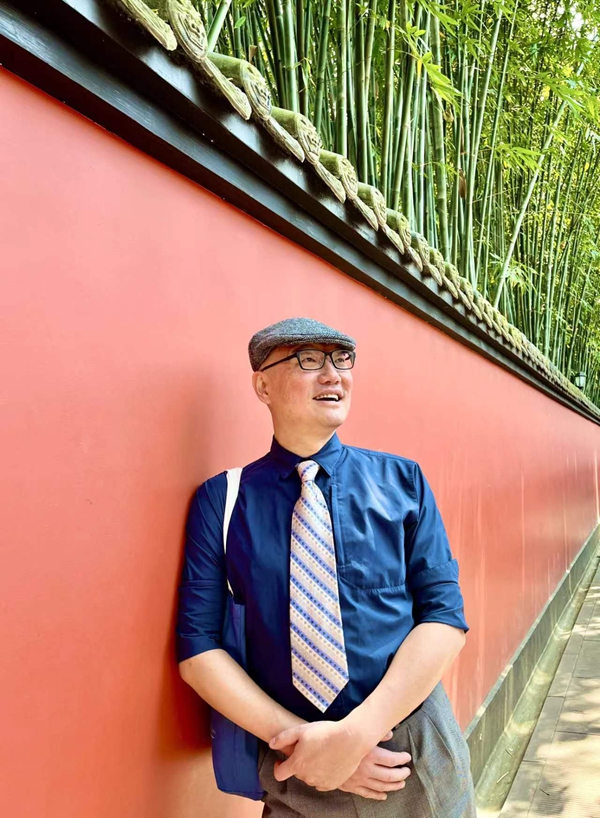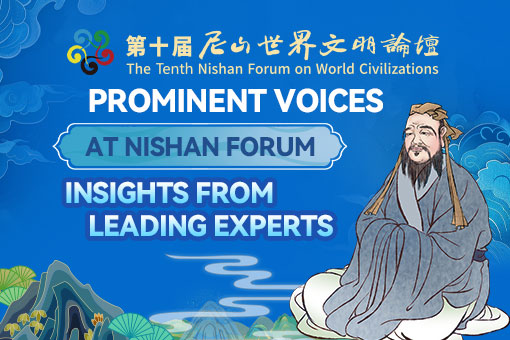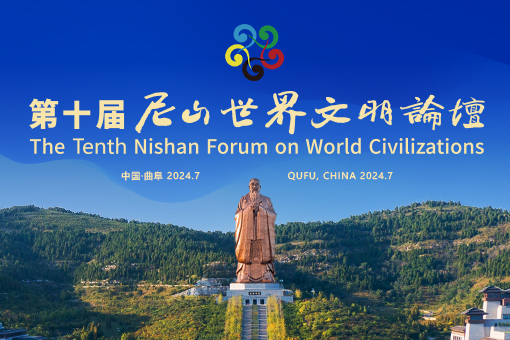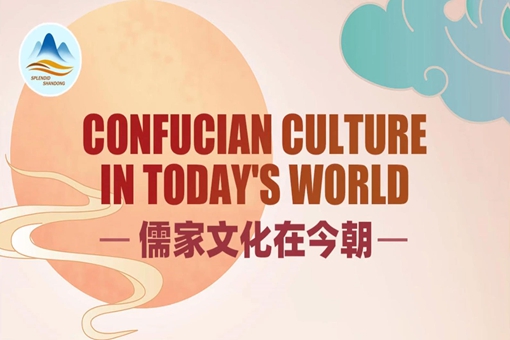US professor sees Confucian values as timeless guides in modern era
(chinadaily.com.cn)| Updated : 2024-07-10
Print PrintEditor's Note: The 10th Nishan Forum on World Civilizations is being held in Qufu, Shandong province, the hometown of Confucius, from July 10 to 11, aiming to promote traditional Chinese culture and strengthen international cultural exchanges and cooperation. China Daily is inviting experts and scholars in related fields to share their insights into Confucianism, traditional Chinese culture and the dialogue among various civilizations.

Hu Minghui, professor at University of California Santa Cruz. [Photo provided to chinadaily.com.cn]
Q: In what ways do values contribute to modern civilization and cultural inheritance?
A: Values are the bedrock of culture, shaping individual behavior and societal choices through moral and ethical guidance. These values are essential for navigating complex social issues and promoting harmony and stability in modern society. Confucian values like benevolence (ren), righteousness (yi), propriety (li), wisdom (zhi), and trustworthiness (xin) offer timeless wisdom that remains relevant today. They guide interpersonal interactions at work and within families while fostering cultural identity and pride in our globalized world. By transmitting these values across generations, we preserve cultural traditions and enrich modern civilization with ancient wisdom. Understanding and embodying these values in our actions is crucial. Learning about Confucian values is an ongoing process of education and cultural integration that requires collective effort and societal support.
Q: What is your favorite saying from The Analects, and how do you interpret it?
A: My favorite saying from The Analects is: "Do not impose on others what you yourself do not desire." This teaching emphasizes empathy and self-discipline in our interactions. It guides us to respect the feelings and rights of others by not forcing upon them what we wouldn't want for ourselves. This principle of reciprocity remains highly relevant in our modern, multicultural, and globalized world, encouraging us to move beyond self-centeredness and foster more harmonious relationships. It also reminds us to be open-minded and learn from other cultures to avoid imposing our values and beliefs on others. This ancient wisdom is as vital today as it was centuries ago.
Q: What opportunities has globalization brought for the dissemination of Confucian thought?
A: Globalization has undeniably opened doors for the global spread of Confucian thought. Through increased cultural exchange and integration, Confucianism has taken a prominent place on the international stage, reaching wider audiences through academic exchanges, cultural events, and a growing interest in Confucian classics.
Additionally, the economic and social shifts caused by globalization have heightened the importance of ethics and social responsibility. Confucian values like benevolence, filial piety, and integrity resonate with these concerns, making them more appealing to diverse audiences. The internet and new media have further accelerated the dissemination of Confucian thought, enabling rapid and widespread sharing through online platforms.
However, the current instability of the global neoliberal order calls for humility and unwavering commitment to our cultural values. We must embrace our cultural identity and actively promote our value system. In a world of fragmented alliances and racist rhetoric, we must confidently assume our role and lead with resilience in the face of increasing challenges and chaos.
Q: What are your expectations for this forum?
A: For this forum, my expectations are as follows:
Critical Exchange: I hope the forum fosters a robust exchange of critical research on Confucian thought in contemporary society, particularly in areas like ethics, education, and social governance.
Collaboration and Learning: I expect to learn from and collaborate with scholars and experts from East Asia, share research findings, and build academic partnerships.
Youth Engagement: I hope the forum will attract young people, sparking in them an interest in the history and evolution of Confucian thought, fostering an appreciation for its modern relevance, and ultimately cultivating a love for Chinese culture.
New Perspectives: I expect the discussions and exchanges to offer fresh perspectives and insights into the complex dynamics of cultural inheritance and innovation within the context of globalization.

 Insights from the 10th Nishan Forum
Insights from the 10th Nishan Forum  The Tenth Nishan Forum on World Civilizations
The Tenth Nishan Forum on World Civilizations  Confucian culture thrives: Integrating its wisdom into modern value
Confucian culture thrives: Integrating its wisdom into modern value